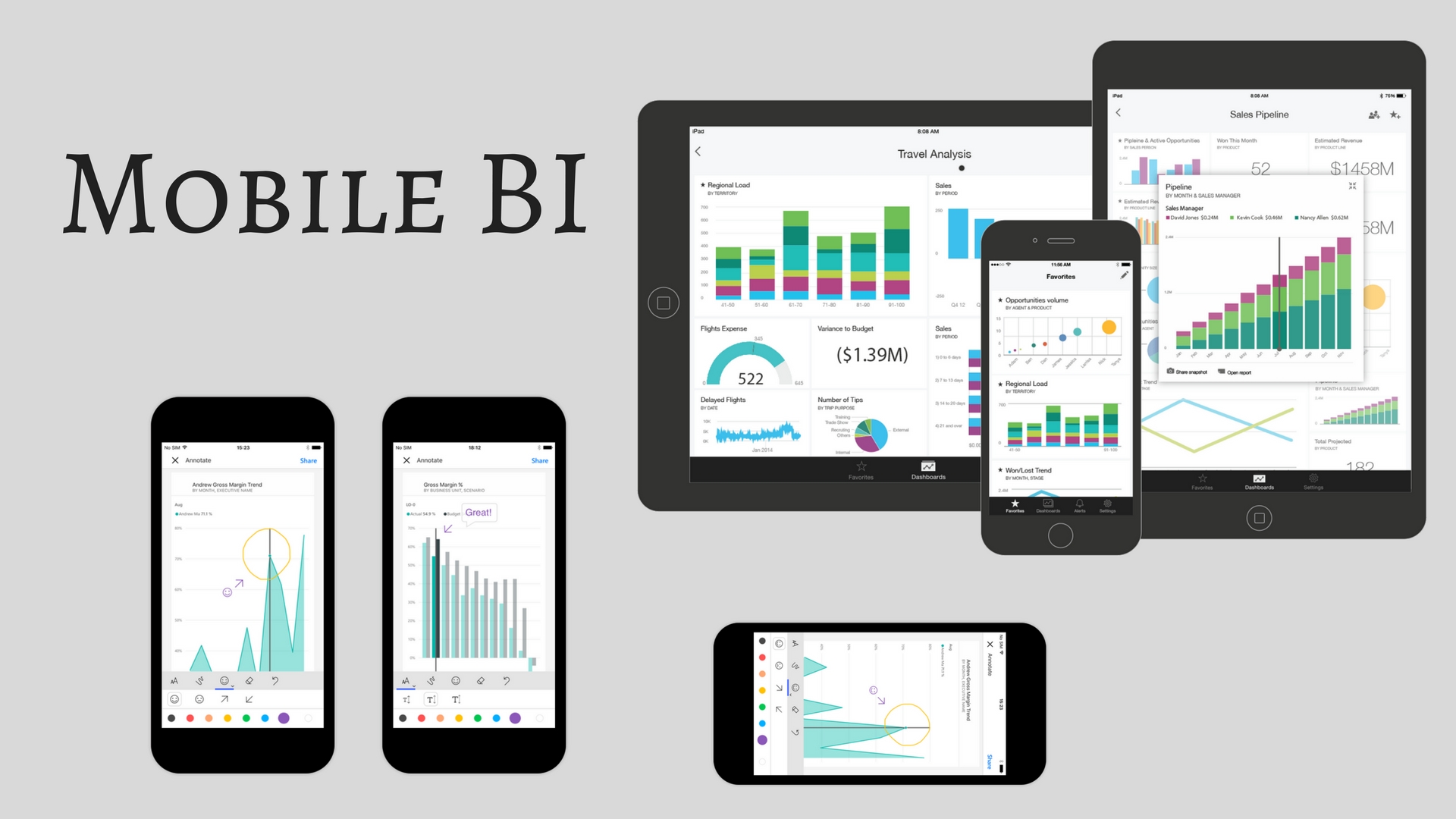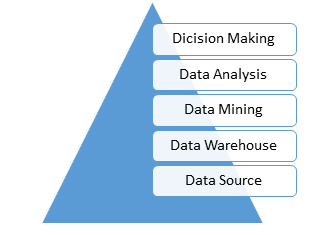Introduction:
Mobiles have disrupted several facets of our day-to-day as well as our professional life. SMBs are looking for an appropriate mobile strategy and integrating upcoming technologies with mobile applications to stay competitive and thrive to grow more. Mobile app development companies and app developers have explained the strategy of business intelligence to developing great mobile BI apps.The emergence of Mobile Business Intelligence
Business Intelligence, or BI, in short, is an ultimately effective technology that can change the scenario of business with its immediate advantages. In the last decade, the world has observed rapid growth of the Internet and high penetration of mobile devices among the world’s population.Role of Cloud Computing
The advancement of cloud technologies has provided a solid platform to collect and store massive data from various computing devices, including billions of numbers of mobile devices.Role of AI & Big Data
After the cloud, the next thing was Big Data phenomena and AI (Artificial Intelligent) related technology burst like ML (Machine Learning), NLP (Natural Language Processing), Cognitive Intelligence, and Voice Recognition systems.Role of IoT Application
Now, the platform was ready to sustain IoT applications, and mobiles were at the center of IoT monitoring and controls. IoT has captured a significant portion of professional applications besides the personal. IoT and M2M technologies are going hand-to-hand in data generation, which has an immediate implementation in business and general operations to make a home, city, and workplaces bright. In short, AI and allied technologies have boosted data generation tremendously, and Big Data phenomena have given birth to NoSQL-like databases and the eruption of various data analytics to support Business Intelligence in meaningful ways.
What is Business Intelligence (BI)?
BI Turns Raw Data into Palatable Information.As its name suggests, it makes business and its processes intelligent by using the latest software technologies and algorithms to run an analysis of business-related data to provide descriptive analytics and insights to make strategic and tactical business decisions. However, the existence of BI was before the emergence of mobiles and mobile apps. BI applications were existing on the web, and web applications accessible to desktops and laptops of business executives. The modern digital tools like visualization, tabulated presentation, graphical displays, and interactive maps enable BI software to make BI data more comprehensive and interactive to draw fruitful conclusions and create effective business strategies. The emergence of mobile applications has shifted BI applications from traditional big screens to tiny screens of mobile, and mobility benefits have added more spices to make it tastier! Of course, more prevalent and valuable than ever.
Difference between AI and BI
Unlike AI, BI is only present ‘what was’ and ‘what is,’ but never tell you ‘what to do’ or help you infer decisions automatically and start taking actions. It is still in the hands of human intelligence, and business executives have to take those responsibilities.Difference between (BI) Business Intelligence and (BA) Business Analytics
Similarly, people confuse with BI and BA due to their similar nature and functions. However, BI is describing ‘what is happening’ by accumulating data and explicitly use it to paint the overall picture beautifully and comprehensively.Business Intelligence Process
Technically BI process consists of the following steps from bottom to top.
-
- External Transform Load (ETL) tools extract data from databases and transform it into data warehouses, analytics applications, and other systems.
- Data mining tools help in the analysis of large datasets to discover patterns and creation of prediction models.
- Online Analytical Processing (OLAP) tools assist in rapid visualization and analysis of business metrics.
Benefits of Business Intelligence
In short, BI provides past, present, and predictive views of almost all internal and external business data, including sales data, operational data, production data, and finance data. “The main objective of BI is to gain strategic insights and based on it evaluates the business risk, and finally improve the decision-making process for business owners (Executives), business managers, and rests of stakeholders.” Therefore, I have described some ways BI leaves its profound impacts on businesses and provides clues to improve the businesses and their operations using the latest mobile technologies.Provide Insights into Customer Behavior
When a business adopts Omnichannel access for customers, there are numerous ways/channels existing today, including website/web application, Chatbot, instant messengers/WhatsApp, social chats, email, and direct calls. These all channels act as multiple touchpoints and generate massive yet valuable data to give detailed insights into customers’ behavior and preferences to help BI mobile apps deliver a customer overview to make the right business decisions.Provide Insights into Operational Efficiencies
Business executives have to make decisions for resources and infrastructure to enhance the operational efficiency of the business. BI mobile apps help them find the right resources from the oversaturated and overcrowded market by intelligent scanning and presentations. BI system provides a deep understanding of market trends, present new business models, bring innovative techniques, and provide insights into business processes and methods.Provide Insights into Revenue Driving Strategies
Defining revenue-driving strategies need critical insights into the end-users of the business. The business has to do marketing with complete knowledge and understanding of influencing factors on customers’ buying decisions instead of shooting into the dark with traditional techniques. Businesses should have a complete user persona with information like what drives them to convert and improve decisions. These all possible with appropriate BI applications tailored to your business needs.Provide Insights into Business Competition
Traditional techniques to look into the business competition can hardly prove effective to give a competitive edge to business. Therefore, today businesses cannot rely much on account statements, analytics software, and Google analytics. They have to look into social signals, market trends, and other secondary data resources provided by the BI system.Provide Insights into Business Problems
Most business executives exploit profit and loss statements, balance sheets, and tracking performance KPIs for the business. Unfortunately, these all hardly reveal hidden trends and bottlenecks that can leave significant impacts on a business’s health at any time. BI mobile applications and attached systems can unveil everything that is missed out on traditional systems.Conclusion:
We have seen how business intelligence mobile applications development emerged on the surface and is now overgrown with the advent of technologies and tools. How BI apps works and what benefits modern businesses can leverage. Moreover, today we have Self-service business intelligence that is capable of providing advanced BI services in sheer more straightforward and comprehensive ways than before. If you are looking for advanced BI mobile app solutions, consider SysBunny and its BI mobile app development team a suitable match for your ambitions.
